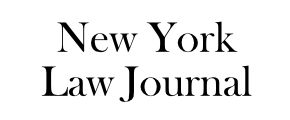Computer Sciences Corporation II
Issue: Misclassification of IT workers
Result: Jury Verdict for Plaintiffs
April 2021 Update:
Click here to visit the Settlement Website for the case.
Connecticut Jury Finds Tech Support Workers Were “Willfully” Underpaid By Computer Sciences Corporation
Thanks to the courage, hard work, and integrity of the many System Administrators who provided information, assistance, and testimony at deposition and trial, the Plaintiffs and class members prevailed at trial on December 20, 2017. The trial was conducted in seven days spread over two weeks at the federal courthouse in New Haven for the District of Connecticut.
A federal jury ruled on December 20, 2017 that Computer Sciences Corporation (CSC), which recently merged with Hewlett Packard Enterprise Services to form DXC Technology (NYSE: DXC), wrongly and willfully denied overtime pay to approximately 1,000 current and former technology support workers around the country. After deliberating over two days, the Connecticut jury unanimously rejected CSC’s claim that its System Administrators in the “Associate Professional” and “Professional” job titles are exempt under federal, Connecticut and California law, ruling instead that the workers should have been classified as nonexempt and paid overtime. The jury found CSC’s violations to be willful, triggering additional damages. The misclassifications were made despite the fact that, in 2005, CSC paid $24 million to settle similar claims from a previous group of technical support workers.
Co-lead plaintiffs’ counsel Daniel Hutchinson of Lieff Cabraser explained, “Because the System Administrators do not make policy, design the systems or do computer programming, they fall within the protections of federal and state overtime laws.”
The case, Joseph Strauch et al. v. Computer Sciences Corporation, No. 3:14-cv-00956, was filed in 2014 in United States District Court in Connecticut. Judge Janet Bond Arterton granted class certification in June of 2017, and the trial began on December 7. The case will next proceed to a damages phase, where the court will determine how much CSC owes each class member.
CSC Case Info and Earlier Developments
In 2005, Computer Sciences Corporation (“CSC”) settled a nationwide class and collective action lawsuit alleging that it had misclassified thousands of its information technology support workers as exempt from overtime pay under federal and state hour laws for $24 million.
Notwithstanding that settlement, a complaint filed on behalf of current and former CSC IT workers in 2014 by Lieff Cabraser and co-counsel alleges that CSC misclassifies many information technology support workers as exempt even though they perform primarily nonexempt work. Plaintiffs are current and former CSC System Administrators assigned the primary duty of the installation, maintenance, and/or support of computer software and/or hardware for CSC clients.
On June 9, 2015, U.S. District Court Judge Jane Bond Arterton granted plaintiffs’ motion for conditional certification, explaining that the plaintiffs met their burden of demonstrating that they and the potential plaintiffs were harmed by a common policy that allegedly violated the law.
The collective action consists of all persons employed by CSC nationwide from July 1, 2011 to the present as Associate Professional System Administrators, Professional System Administrators, or Senior Professional System Administrators, who earned less than $100,000 annually, and who were classified as exempt from the overtime pay requirements of the Fair Labor Standards Act of 1938 (the “FLSA”).
Notice of the collective action has been provided to these workers by mail and email, and more than 1,000 workers have joined the case through this process.
On June 30, 2017, Judge Arterton granted plaintiffs’ motion for class certification for Associate Professional System Administrators and Professional System Administrators who worked in Connecticut between July 1, 2012 and the end of the lawsuit, or in California from July 1, 2010 through the end of the lawsuit.
Civil Litigation News
Caitlin Woods Named a Firm Partner for 2026
We are pleased to announce that Caitlin Woods has been promoted to partner.
Brendan Glackin Named a Top Antitrust Lawyer in California by the Daily Journal
We are pleased to announce that the Daily Journal (subscription) has named Lieff Cabraser partner Brendan Glackin to its just-announced
Lieff Cabraser and Kaplan Gore Announce Filing of Federal Class Action Lawsuit Against Google Over the Defective Google Nest Hub, Google Nest Hub Max, Google Nest Mini, and Google Nest Audio Devices
Complaint alleges that Google induced plaintiffs and other customers to spend hundreds of dollars or more each to purchase Google
















